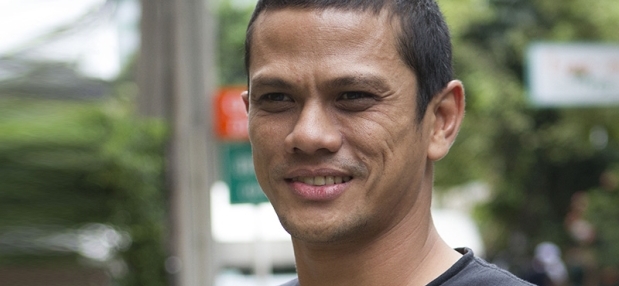From 19 till 21 April 2016, nearly 200 UN member states will come together to discuss the solution for the ‘world drug problem’. We spoke to Edo, whose voice will represent the voices of the drug user community during the UN General Assembly Special Session on Drugs (UNGASS).

During UNGASS the member states hope to find a solution for the ‘world drug problem’. Will you be present at this high-level meeting in New York?
‘Yes, I’m excited that I can attend UNGASS. The meeting is quite special, because the last session on drugs was long ago, in 1998. The member states that pushed for the session are of the opinion that the world needs to reconsider the current approach, which has failed. I will be there as a member of the community of people who use drugs. In this role, I will for example speak at a side event of Amnesty International and participate in a meeting about the development of guidelines for a human rights-based approach to drug control. It is very important that the voices of the people who use drugs are heard. In Indonesia, they are systematically stigmatised and criminalised, and the implementation of the country’s policy is worse than the drugs itself. People who use drugs are the most affected population by this policy.’
You will represent a network of organisations for and by people who use drugs in Indonesia, PKNI. How did you prepare for this meeting?
‘PKNI gave input to the Civil Society Task Force in Southeast Asia, which submitted recommendations for the UNGASS outcome document. In addition, PKNI shared its concerns and ideas about the drug policy in Indonesia during a meeting with Indonesian government representatives. Civil society groups also released a statement, ‘Diplomacy or denialism?’. Our role is to monitor and be a key partner in a positive relationship, and we hope that the decisions made during UNGASS will be more legitimate and effective. Before and during the Special Session, we work together in a consortium because in this way we can make our voices louder. Over the years, the movement to end the war on drugs has been growing stronger and stronger. While we continue to fight our small battles, we must unite to ensure that no country or region is left out.’
What would be the solution to the ‘world drug problem’?
The punitive approach must end. The leaders of the world should develop a new strategy that takes into account development, public health and human rights – a humane drug policy.
‘Like Einstein said: ‘Insanity: doing the same thing over and over again and expecting different results’. Illicit drug use is placed under the health goal in the Sustainable Development Goals. To achieve the goals and to end AIDS, drug policy reforms should prioritise health and a human rights approach.’
Published on www.hivgaps.org on April 18, 2016



